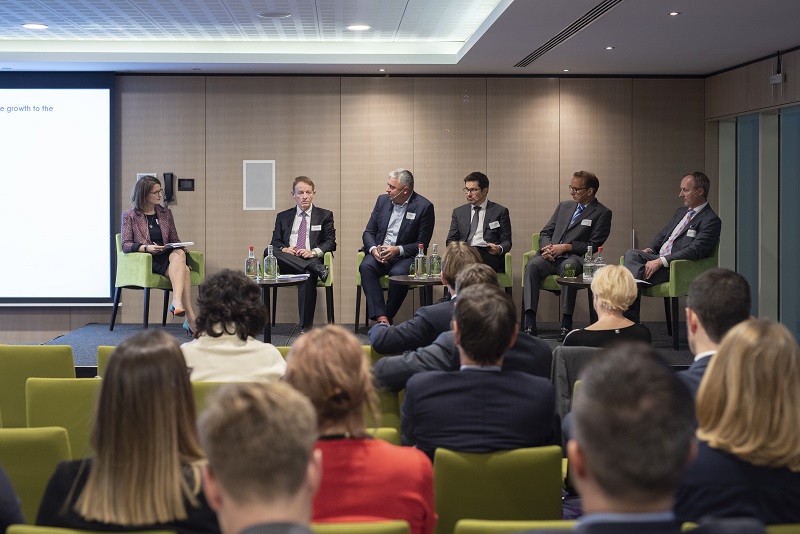Airports' license to invest is a prerequisite for decarbonisation
19 November 2019Brussels - The 3rd Airport Investment Symposium took place yesterday in Brussels, organised by ACI EUROPE in partnership with the GIIA (Global Infrastructure Investor Association). The event brought together airports operators, institutional investors, financial advisers and airlines together with representatives from the European Commission, the EIB (European Investment Bank), EUROCONTROL and EU States.
Against a background of generally lagging investments in transport infrastructure, Europe is facing a €12.3 billion airport investment gap over the next 5 years. Such gap will add to a 12% shortfall between needed and realised airport investment since 2013.
With Europe already accounting for more than half of the World’s most congested airports, the lack of airport investment will compromise the competitive position of the EU, threaten economic convergence and the full benefits of the single market. Crucially, it will also impact the ability of airports to decarbonise.
Europe’s airports formally committed last June to achieve Net Zero CO2 emissions at the latest by 20501 – building on the work done over the past 10 years to reduce carbon emissions over which they have control through the Airport Carbon Accreditation programme2. But achieving Net Zero will require significant new investments to decarbonise both their facilities (buildings) and vehicle fleets.
Olivier Jankovec, Director General of ACI EUROPE said: “Retrofitting existing passenger terminals and developing new ones to the highest energy efficiency standards will alone require at least €25.9 billion in additional investments. While this will generate significant savings overtime in terms of operating costs, these savings will only materialise if and once these investments have been made. This means that giving airports the freedom and license to invest is a prerequisite for them to decarbonise.”
With Governments no longer willing or able to finance airport development and EU State aid rules limiting their ability to do so, airport investment in Europe has essentially become corporate and increasingly private over the past 20 years. At the same time, strong demand growth, market developments and external factors have led to airport investment needs increasing and becoming more diverse. These now range from capacity, connectivity & quality to security & safety as well as digitalisation & ATM integration, intermodality - and of course sustainability, climate resilience & decarbonisation.
Jankovec further commented: “The airport investment gap reflects more unpredictable trading conditions and increasing competitive pressures. But there is no doubt it is also down to incumbent airline opposition to our investments as they seek to protect their own market position. Inadequate airport regulation is also an increasing factor. Decisions or proposals tabled over the past months by regulators in France, Italy, Ireland and Switzerland are now challenging airport investment plans3. Today’s priorities should be about sustainability, capacity and consumer interest. It is high time regulators start focusing on these, rather than airlines’ interest.”
Jon Philipps, Director Corporate Affairs of GIIA concluded: “Airports play a critical role across Europe in helping to deliver sustainable economic growth. Investors stand ready to deliver the funding to meet customer, capacity and environmental improvement projects that will enable the aviation sector to meet future challenges - including achieving Net Zero carbon emissions. But policy makers and regulators need to ensure the right framework is in place to facilitate this essential investment."


